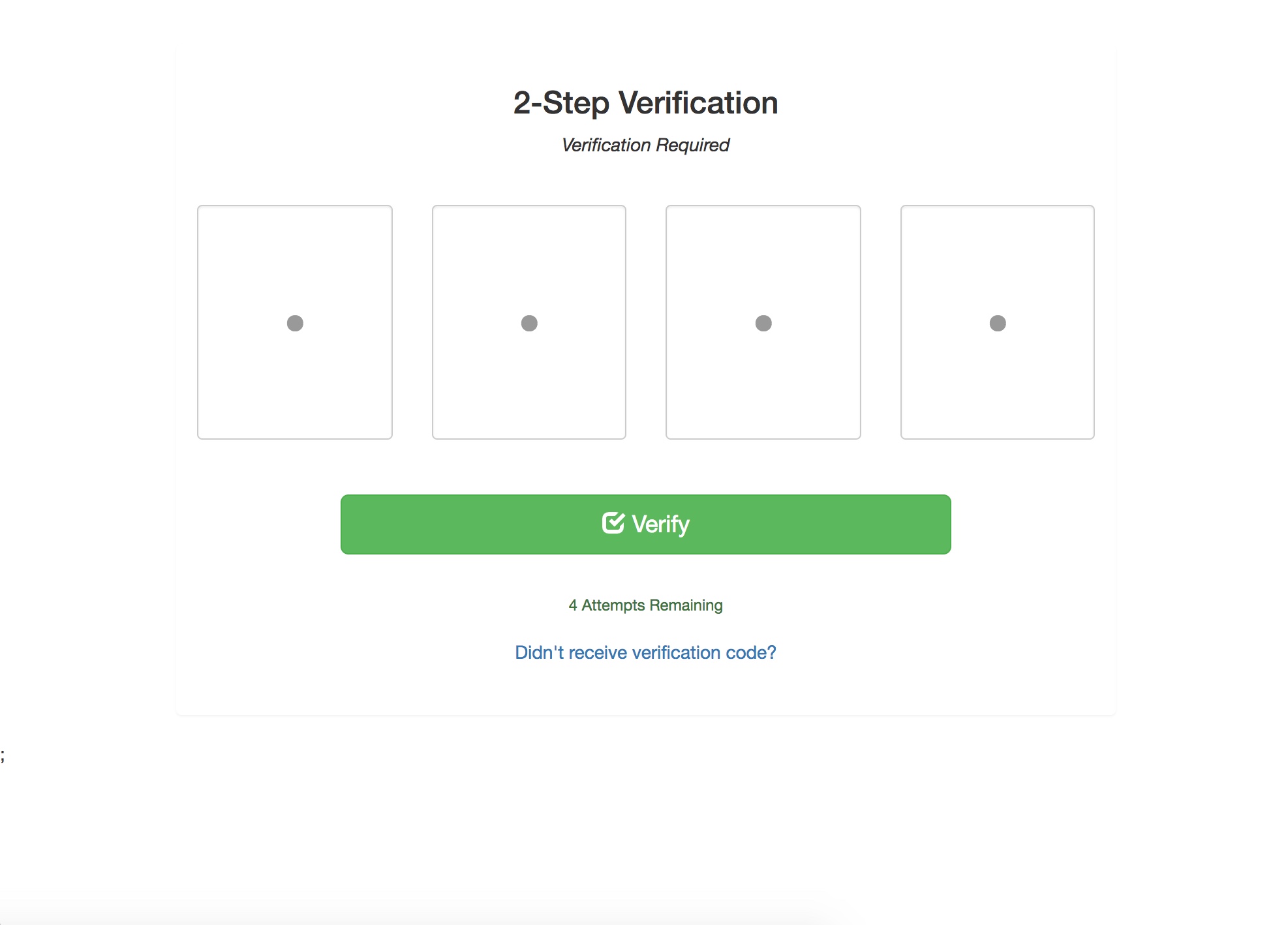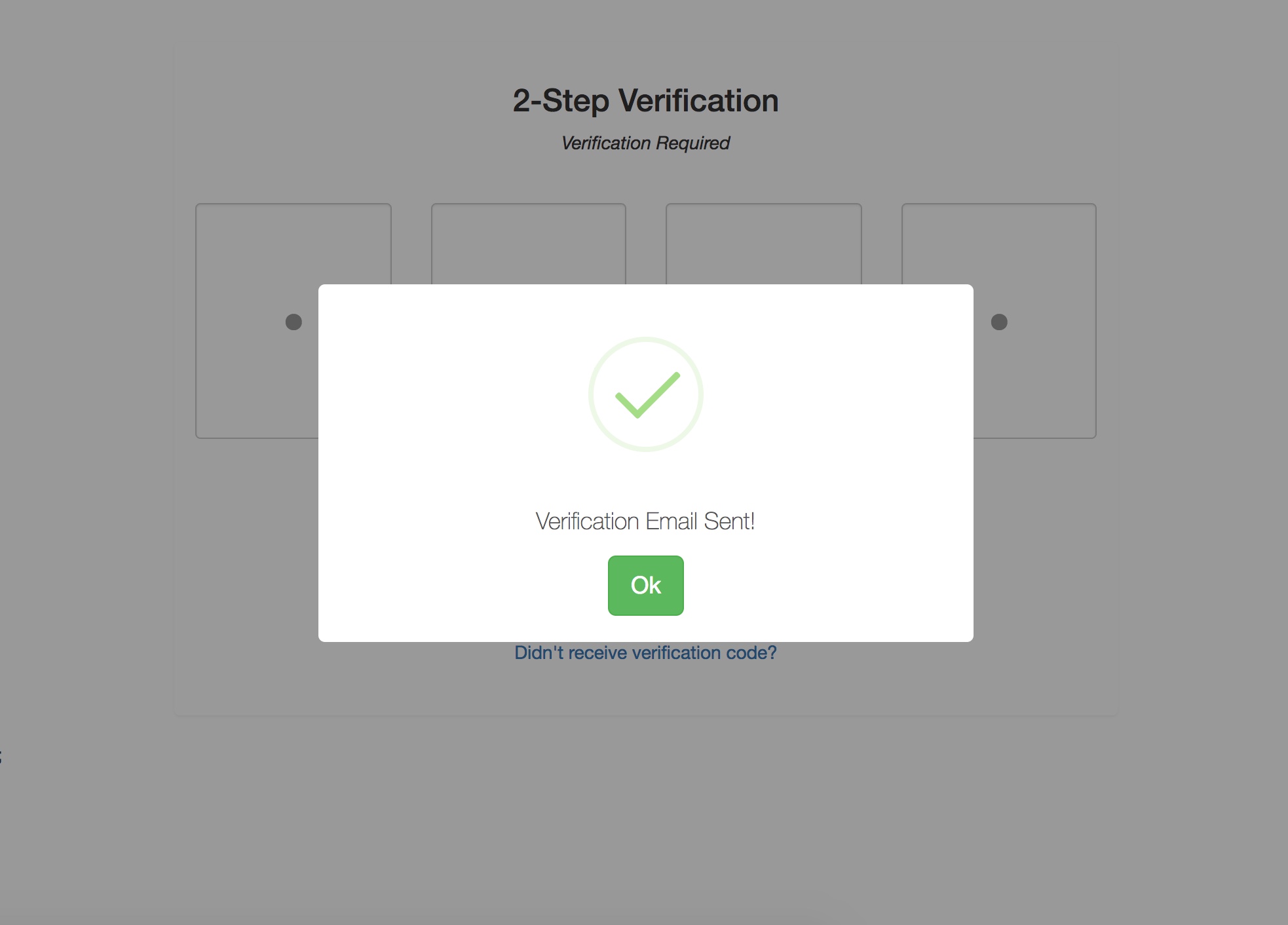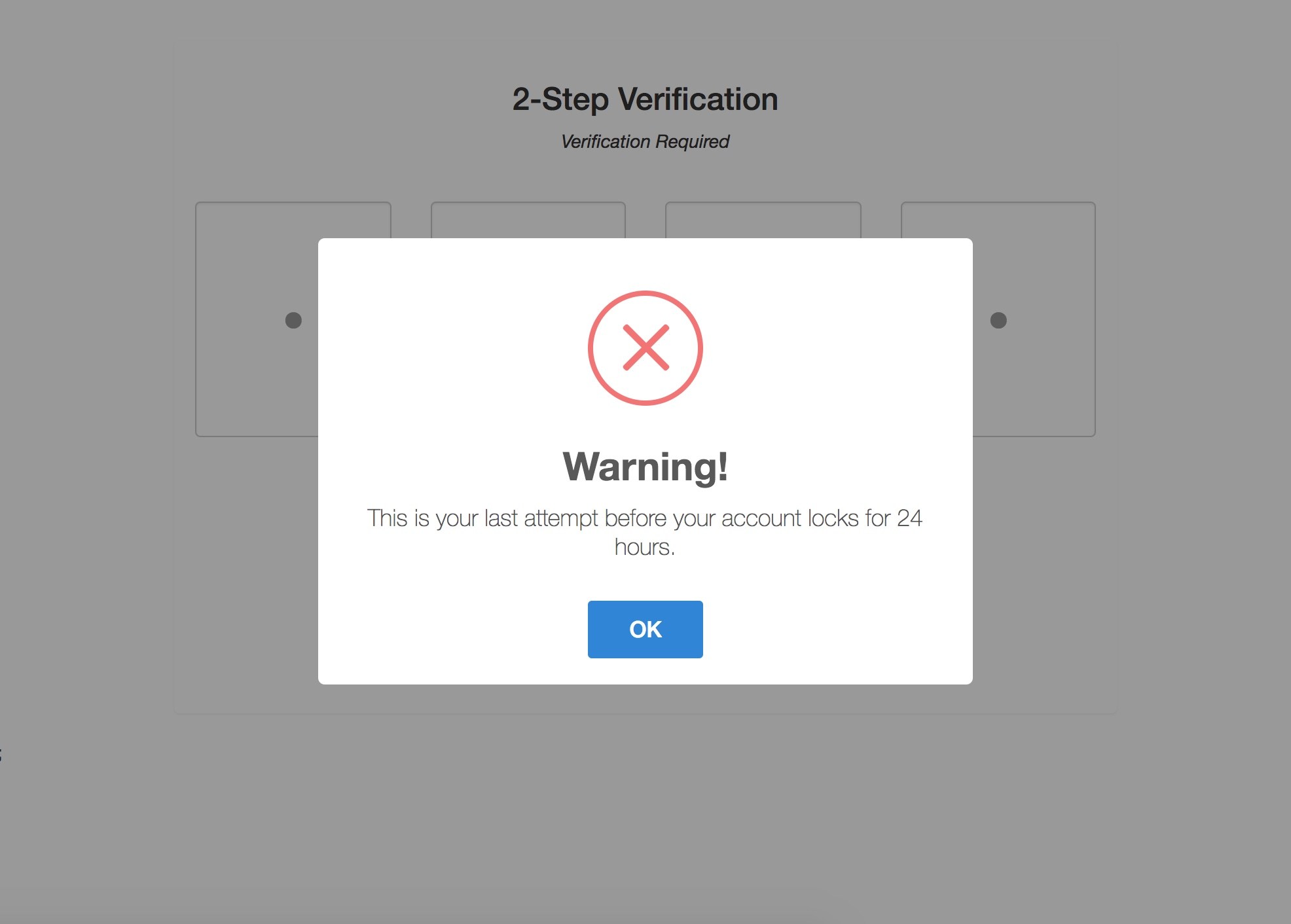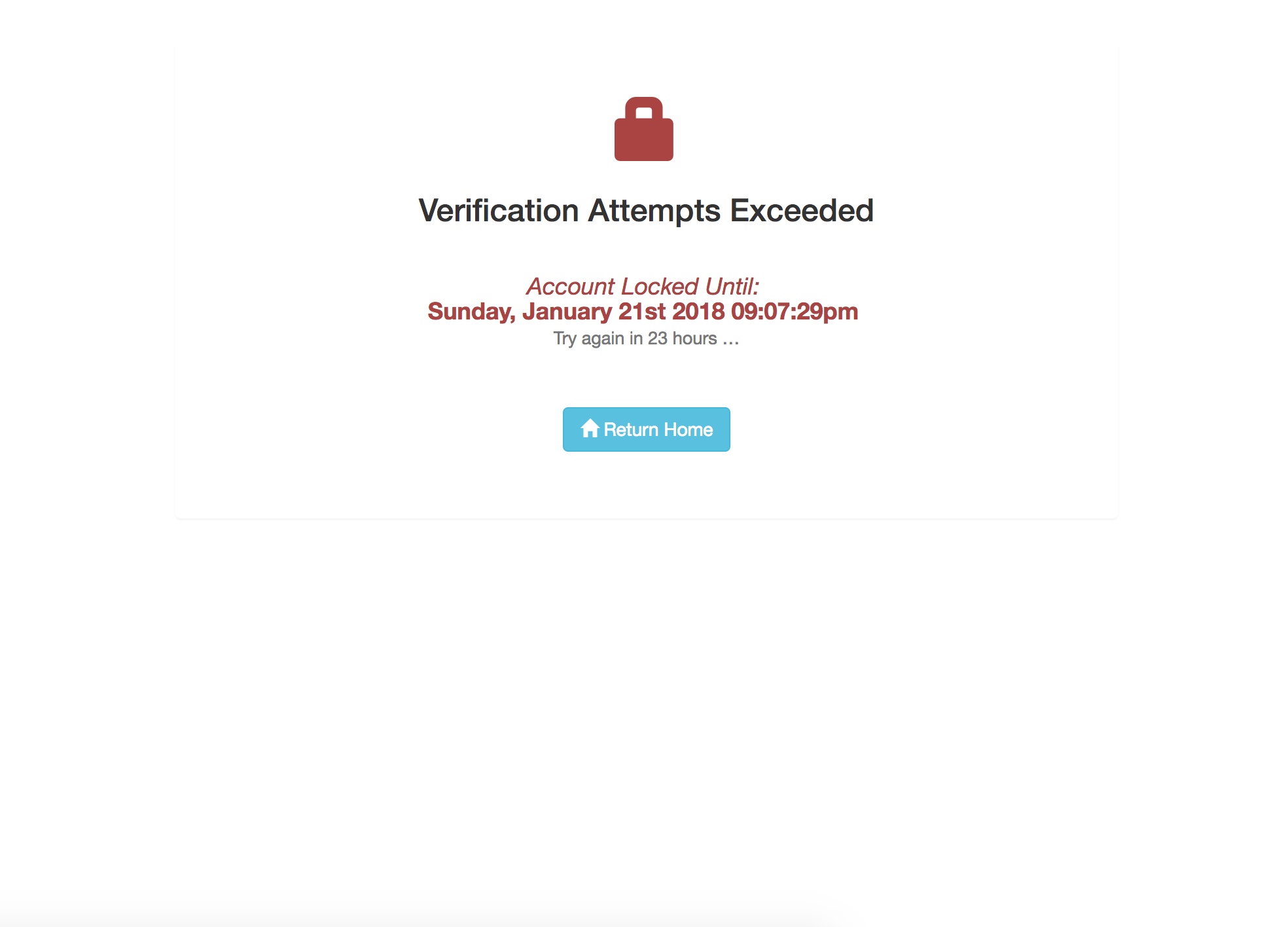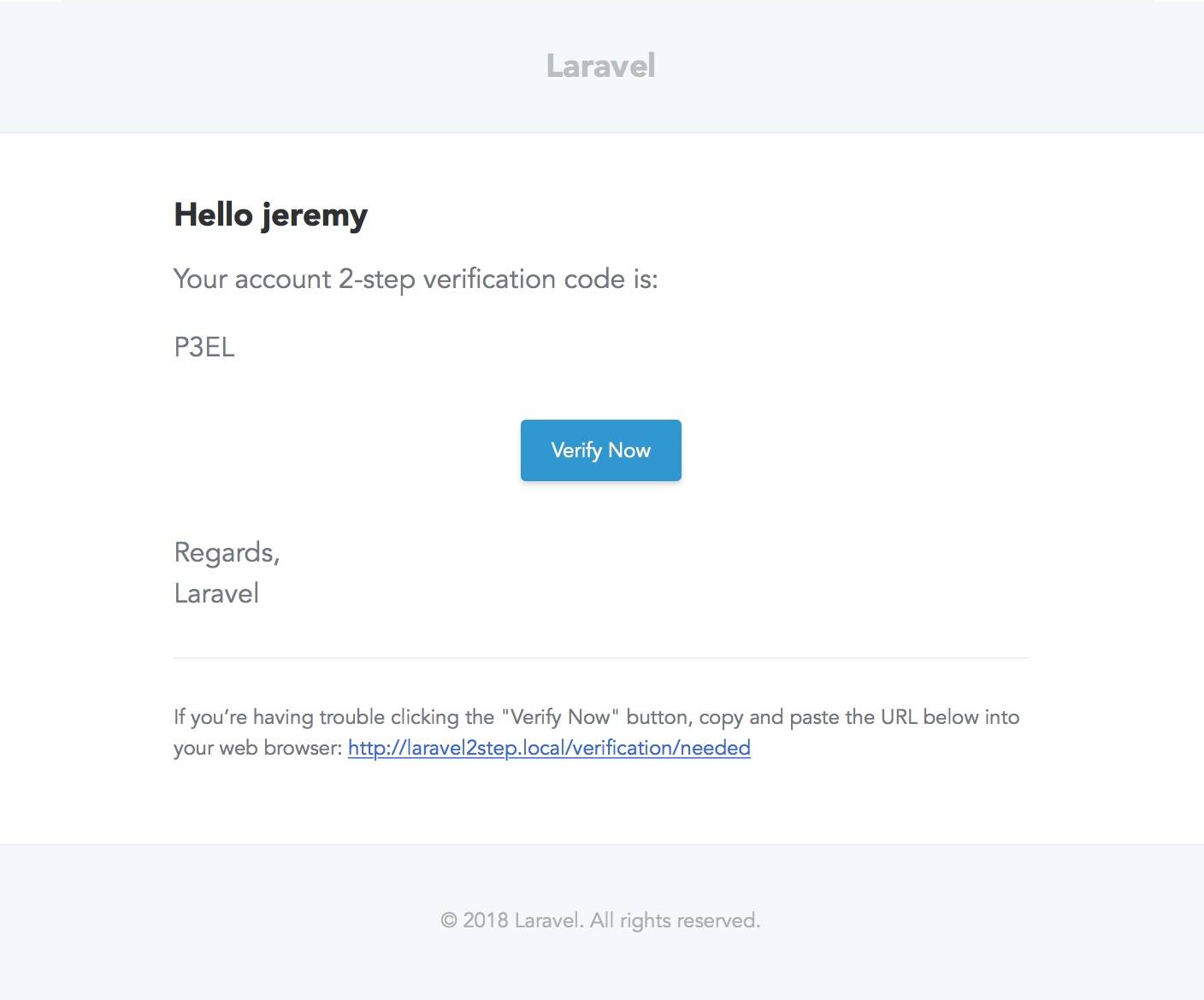Table of contents:
- About
- Features
- Requirements
- Installation Instructions
- Configuration
- Usage
- Routes
- Screenshots
- File Tree
- Future
- Opening an Issue
- License
Laravel 2-Step verification is a package to add 2-Step user authentication to any Laravel project easily. It is configurable and customizable. It uses notifications to send the user an email with a 4-digit verification code.
Laravel 2-Step Authentication Verification for Laravel. Can be used in out the box with Laravel's authentication scaffolding or integrated into other projects.
| Laravel 2 Step Verification Features |
|---|
| Uses Notification Class to send user code to users email |
| Can publish customizable views and assets |
| Lots of configuration options |
| Uses Language localization files |
| Verificaton Page |
| Locked Page |
-
From your projects root folder in terminal run:
Laravel 6+ use:
composer require jeremykenedy/laravel2step
Laravel 5.8 use:
composer require jeremykenedy/laravel2step:v1.4.0
Laravel 5.7 and below use:
composer require jeremykenedy/laravel2step:v1.0.2 -
Register the package
-
Laravel 5.5 and up Uses package auto discovery feature, no need to edit the
config/app.phpfile. -
Laravel 5.4 and below Register the package with laravel in
config/app.phpunderproviderswith the following:
'providers' => [
jeremykenedy\laravel2step\laravel2stepServiceProvider::class,
];- Publish the packages views, config file, assets, and language files by running the following from your projects root folder:
php artisan vendor:publish --tag=laravel2step-
Optionally Update your
.envfile and associated settings (see Environment File section) -
Run the migration to add the verifications codes table:
php artisan migrate- Note: If you want to specify a different table or connection make sure you update your
.envfile with the needed configuration variables.
- Make sure your apps email is configured - this is usually done by configuring the Laravel out the box settings in the
.envfile.
Laravel 2-Step Verification can be configured in directly in /config/laravel2step.php or in the variables in your .env file.
Here are the .env file variables available:
LARAVEL_2STEP_ENABLED=true
LARAVEL_2STEP_DATABASE_CONNECTION=mysql
LARAVEL_2STEP_DATABASE_TABLE=laravel2step
LARAVEL_2STEP_USER_MODEL=App\User
LARAVEL_2STEP_EMAIL_FROM="anEmailIsrequired@email.com"
LARAVEL_2STEP_EMAIL_FROM_NAME="Laravel 2 Step Verification"
LARAVEL_2STEP_EMAIL_SUBJECT='Laravel 2 Step Verification'
LARAVEL_2STEP_EXCEEDED_COUNT=3
LARAVEL_2STEP_EXCEEDED_COUNTDOWN_MINUTES=1440
LARAVEL_2STEP_VERIFIED_LIFETIME_MINUTES=360
LARAVEL_2STEP_RESET_BUFFER_IN_SECONDS=300
LARAVEL_2STEP_CSS_FILE="css/laravel2step/app.css"
LARAVEL_2STEP_APP_CSS_ENABLED=false
LARAVEL_2STEP_APP_CSS="css/app.css"
LARAVEL_2STEP_BOOTSTRAP_CSS_CDN_ENABLED=true
LARAVEL_2STEP_BOOTSTRAP_CSS_CDN="https://maxcdn.bootstrapcdn.com/bootstrap/3.3.7/css/bootstrap.min.css"Laravel 2-Step Verification is enabled via middleware. You can enable 2-Step Verification in your routes and controllers via the following middleware:
twostepExample to start recording page views using middlware in web.php:
Route::group(['middleware' => ['twostep']], function () {
Route::get('/home', 'HomeController@index')->name('home');
});/verification/needed/verification/verify/verification/resend
└── laravel2step
├── .gitignore
├── LICENSE
├── README.md
├── composer.json
└── src
├── .env.example
├── Laravel2stepServiceProvider.php
├── app
│ ├── Http
│ │ ├── Controllers
│ │ │ └── TwoStepController.php
│ │ └── Middleware
│ │ └── Laravel2step.php
│ ├── Models
│ │ └── TwoStepAuth.php
│ ├── Notifications
│ │ └── SendVerificationCodeEmail.php
│ └── Traits
│ └── Laravel2StepTrait.php
├── config
│ └── laravel2step.php
├── database
│ └── migrations
│ └── 2017_12_09_070937_create_two_step_auth_table.php
├── public
│ └── css
│ ├── app.css
│ └── app.min.css
├── resources
│ ├── assets
│ │ └── scss
│ │ ├── _animations.scss
│ │ ├── _mixins.scss
│ │ ├── _modals.scss
│ │ ├── _variables.scss
│ │ ├── _verification.scss
│ │ └── app.scss
│ ├── lang
│ │ └── en
│ │ └── laravel-verification.php
│ └── views
│ ├── layouts
│ │ └── app.blade.php
│ ├── partials
│ ├── scripts
│ │ └── input-parsing-auto-stepper.blade.php
│ └── twostep
│ ├── exceeded.blade.php
│ └── verification.blade.php
└── routes
└── web.php
- Tree command can be installed using brew:
brew install tree - File tree generated using command
tree -a -I '.git|node_modules|vendor|storage|tests
- Unit Tests
- Travis-CI Integration.
- Its own HTML email template.
- Add in additional notifications for SMS or ???.
- Add in capture IP Address.
- Change to incremental tables and logic accordingly
- Create Artisan command and job to prune said entries.
Before opening an issue there are a couple of considerations:
- A star on this project shows support and is way to say thank you to all the contributors. If you open an issue without a star, your issue may be closed without consideration. Thank you for understanding and the support. You are all awesome!
- Read the instructions and make sure all steps were followed correctly.
- Check that the issue is not specific to your development environment setup.
- Provide duplication steps.
- Attempt to look into the issue, and if you have a solution, make a pull request.
- Show that you have made an attempt to look into the issue.
- Check to see if the issue you are reporting is a duplicate of a previous reported issue.
- Following these instructions show me that you have tried.
- If you have a questions send me an email to jeremykenedy@gmail.com
- Need some help, I can do my best on Slack: https://opensourcehelpgroup.slack.com
- Please be considerate that this is an open source project that I provide to the community for FREE when openeing an issue.
Open source projects are a the community’s responsibility to use, contribute, and debug.
Laravel 2-Step Verification is licensed under the MIT license. Enjoy!



